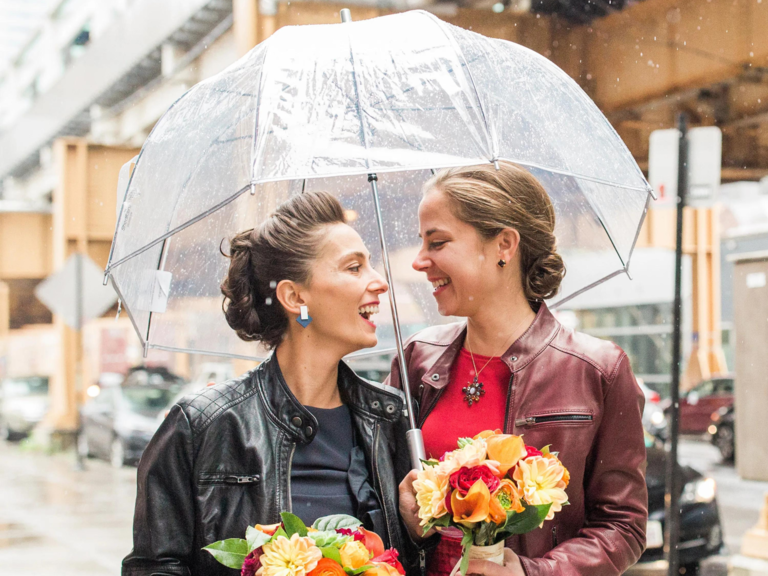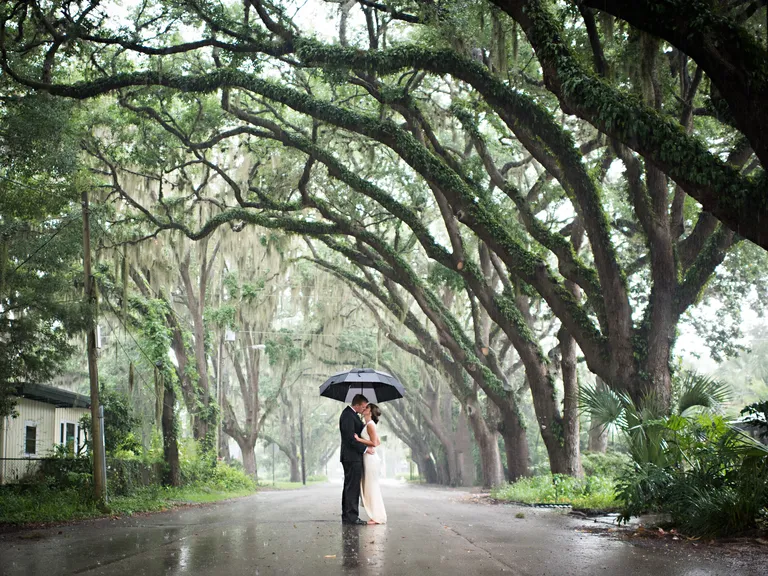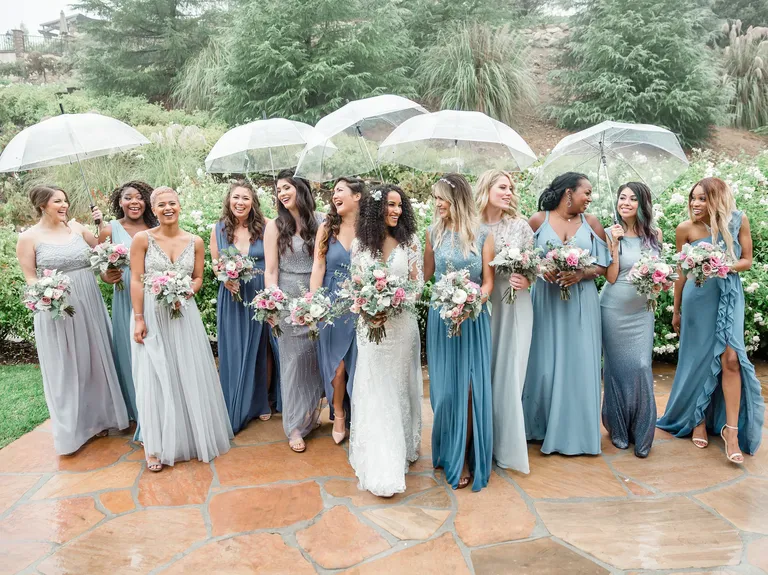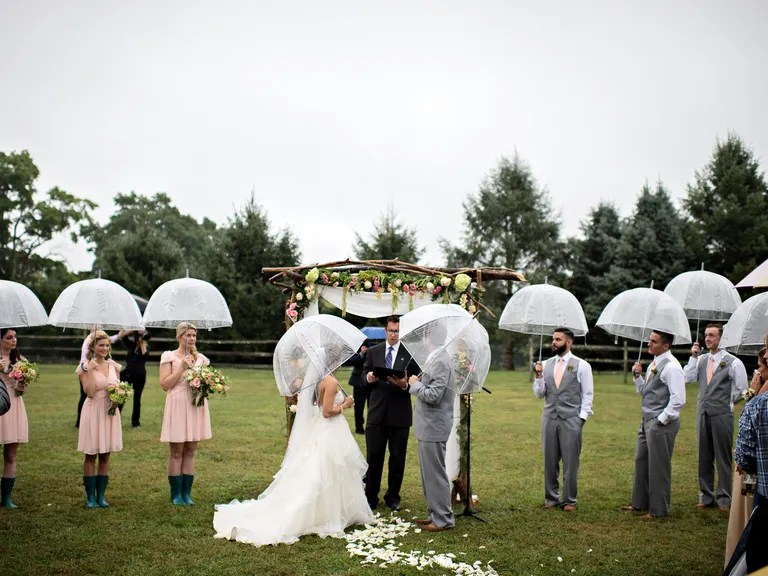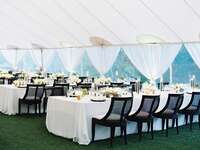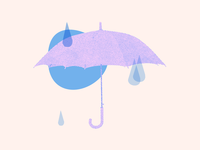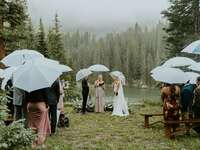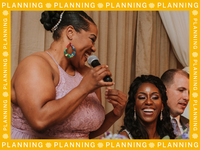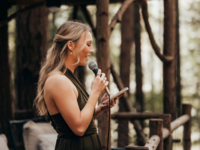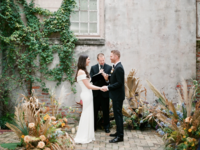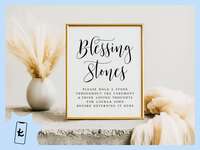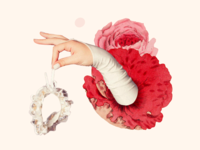Why Rain on Your Wedding Day Is Considered Good Luck
If you're planning an outdoor ceremony, we're sure you've been met with the response: "Rain on your wedding day is good luck!" to your laments about possible drizzly weather. It's a phrase that's been tossed around for decades (centuries even), but where did this auspicious wedding superstition come from? And is there any truth to it? Does rain on your wedding day mean good luck?
We're digging into the origin of the "rain on the wedding day is good luck" wives tale here, so you can rest a little easier as you create an outdoor rain plan for your nuptials. Grab one of those cute clear umbrellas and get ready to embrace the power of a shower.
In this article: Is Rain Good Luck? | Why? | What Does It Mean? | History & Origin
Is Rain on Your Wedding Day Good Luck?
Yes, a rainy day is thought to be a lucky wedding date. It's a long-held belief in many cultures and religions, from Hinduism to Irish lore, and has become ubiquitous across Europe and North America. Even notable writers and influential figures have hopped on the rain train, resulting in several "rain on a wedding day is good luck" quotes. Here are a few of our favorites:
- "A light rain shower on your wedding day is like the sweet wishes of family and friends for a lifetime of love." Author Samuel Brooks.
- "The soft raindrops on your wedding day are blessings from above that will forever seal your love." Irish barrister Samuel Turner.
- "Let the raindrops show that the love shared on this special day will last forever." Actor Julia Roberts.
Though, you'll occasionally find a few less-positive interpretations, such as every raindrop symbolizing a tear you'll cry during your marriage. But overall, the answer to the question: "Is rain good or bad luck on your wedding day?" skews heavily toward the positive end of the spectrum.
Why Is Rain on Your Wedding Day Good Luck?
If it's raining on your wedding day, it's good luck—a sprinkle or shower supposedly bestows blessings onto the wedded couple. It symbolizes abundance (both in money and in joy), a fresh start in life, fertility and unity. The rain on your wedding day superstition also goes hand in hand with another popular piece of wedding mythology: the idea of tying the knot. Literally speaking, a knot tied with wet fabric or string is much tougher to unfasten than a dry one. The same goes for a marriage made under stormy skies. By this mystical logic, if you swap vows in the rain, your union will be stronger.
What Does Rain on Your Wedding Day Mean?
Now that you know that rain on your wedding day's cultural meaning is most often tied to auspicious tidings, let's break down what it means in a practical sense. First and foremost, it means you should nail down your preferred plan of what to do when it rains during your nuptials, whether that involves switching the spot where you'll say "I do" or just outfitting your wedding party and guests with some sweet wedding umbrellas. Wedding insurance is another factor to consider if your outdoor ceremony or reception space is heavily weather dependent. This will help safeguard you from losing cash if you have to cancel, adapt or postpone in the eleventh hour. Your The Knot wedding website will be key here in communicating any contingency plans or updates to guests. Simply add an "update" or a "note to our guests" section to relay any changes in the proceedings, or update the details in the main sections for any firm last-minute alterations. It's so much easier than sending a mass text or email.


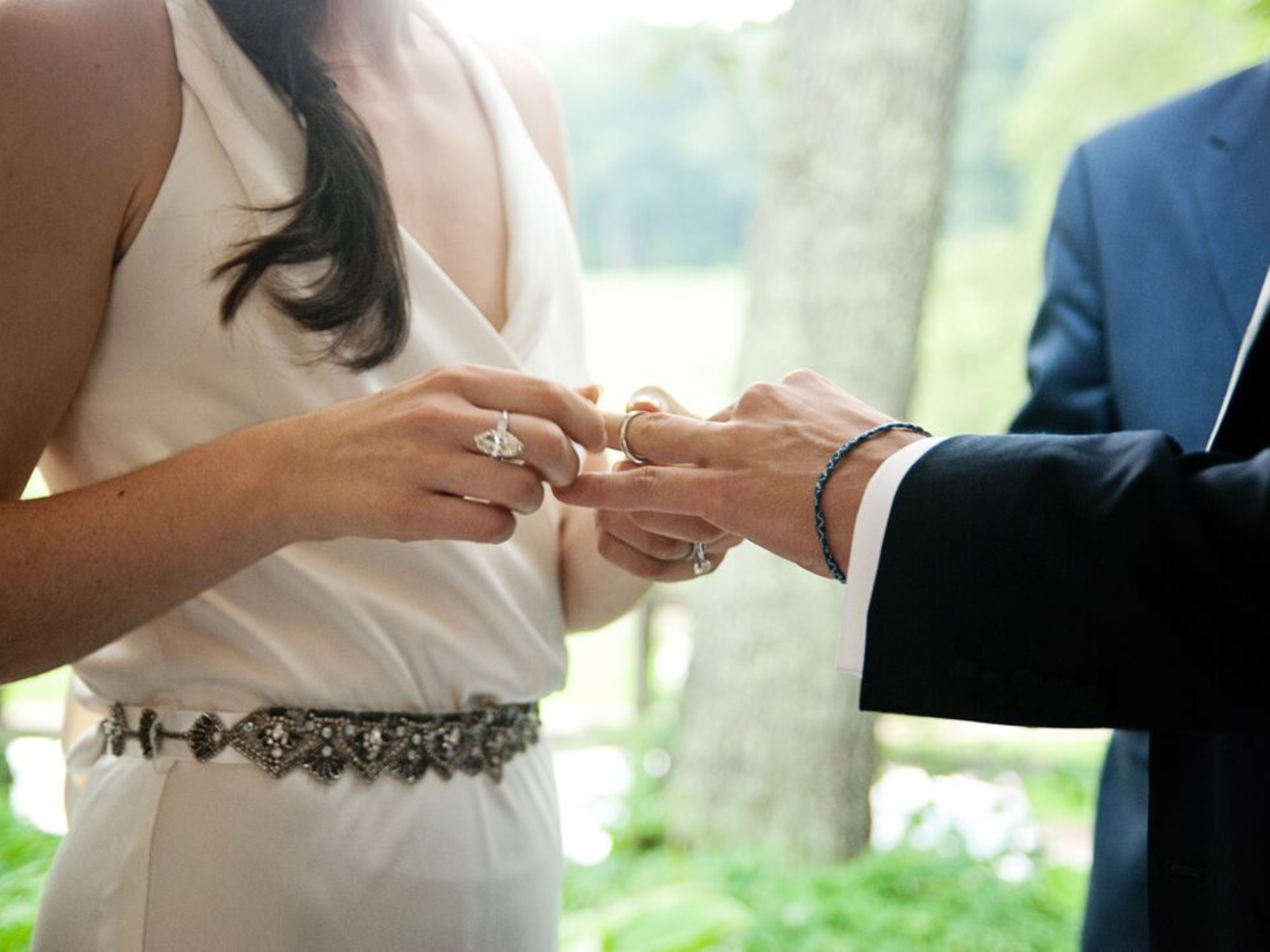
Regardless of if you're hoping for a sprinkle or full sunshine on the day, finding and hiring a wedding meteorologist will be super helpful. (Yes, those exist and YES you can book these unique wedding pros through The Knot Vendor Marketplace—including 2024 The Knot Ones to Watch winner Ironic Reports.) At the very least, there are a few wedding day forecast apps that'll help you see what the skies have in store.
On a more circumstantial level, rain on your wedding day means magic. There's something enchanting in how cloudy skies make everything seem brighter and more vibrant (including your wedding flowers, which you won't have to worry about wilting). And it'll prompt guests to huddle together, mixing and mingling more than they might if they could spread out in the sunshine. Overall, it adds a romantic and cozy energy to your wedding day.
The History and Origin of the Superstition
While superstitions about wedding-day rain have roots in numerous cultures, strong beliefs surrounding the notion have the firmest footholds in ancient Hindu and Celtic customs. In Hinduism, rain is associated with compassion and devotion, both of which are integral for a successful partnership. Rain is also deeply tied to new beginnings, so it reinforces that a couple's marriage is the right move, a blessed fresh start.
Handfasting ceremonies were popular marriage rituals for the ancient Celts during the late Bronze Age through the Iron Age (700 BCE to c. 400 CE). They believed that if it rained during this wedding tradition, the couple's union would be lucky and blessed. The idea of rain on the wedding day bringing good luck also stems from a much simpler reality for the Irish: the country's prevailing rainy weather.
Rain is mentioned in a slew of traditional Irish marriage blessings. You'll likely recognize the one that begins: "May the road rise up to meet you." A few lines in, it mentions: "may rains fall soft upon your fields." This text frames rainfall as a positive thing, a balancing force of nature that ensures your love and livelihood (and crops if you are, in fact, an Irish farmer) will thrive. Another Irish blessing starts: "Happy is the bride that rain falls on," reinforcing the positive association of rain, suggesting it brings good tidings—like joyful mornings, peaceful evenings, few troubles, many blessings and equal parts love and friendship in your marriage—in the subsequent verses.
